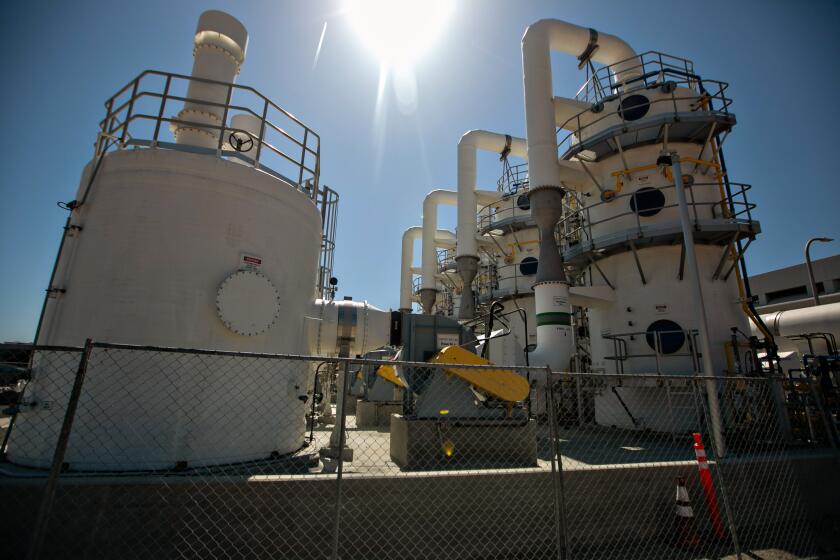Major Tobacco Suit Ends in Mistrial
With jurors deadlocked 10-2 in favor of the tobacco industry, a federal judge in Brooklyn on Thursday declared a mistrial in the first big case to focus on the particularly lethal effects of smoking on workers exposed to asbestos.
Despite the inconclusive result, the trial’s outcome was favorable for tobacco companies and a blow to the Manville Personal Injury Settlement Trust, which had sought to make tobacco firms pay hundreds of millions of dollars in compensation to sick asbestos workers.
Jurors deliberated for nearly five days before being dismissed by U.S. District Judge Jack Weinstein amid growing rancor and a complaint by a holdout that another juror had threatened her. A unanimous vote was required for a verdict in the two-month trial.
Attorneys for the trust said they will seek a retrial, while tobacco lawyers said they will ask Weinstein to dismiss the case.
The result continues the industry’s success in fending off suits by employee health and compensation funds that have sought help in paying for smoking-related illnesses. Dozens of such suits have been filed for damages amounting to tens of billions of dollars.
But many of the cases have been dismissed because seven federal appeals courts have ruled the funds are too remote from the harm suffered by workers for the cases to proceed. The Manville Trust suit was only the second of these cases to make it to trial, and tobacco foes were hoping for a breakthrough win. The only previous trial of such a third-party claim, filed by a union health-care fund in Ohio, was won by tobacco companies.
Following the bankruptcy of Johns-Manville, the trust was established in 1988 to compensate sick asbestos workers. The trust has paid out more than $2 billion, but has been forced to pay most claimants 10 cents on the dollar to assure there will be money left for hundreds of thousands more claimants.
The case focused on the especially lethal combination of cigarette smoke and asbestos. According to health studies, the lung cancer risk is five times greater than normal for asbestos workers and 10 times greater for chronic smokers, but increases at least 50-fold for smokers who breathe asbestos.
As with other blue-collar workers, some 80% of asbestos workers smoked. According to the plaintiffs, smoking made claims to the trust more numerous and more severe.
And plaintiffs said fewer asbestos workers would have smoked--and more would have quit--had the tobacco industry not lied about smoking and the special risks for asbestos workers who smoke.
But jurors were instructed that to rule for the Trust, they had to find that the Trust--and not the workers--had relied on tobacco industry distortions and suffered damage as a result.
More to Read
Start your day right
Sign up for Essential California for news, features and recommendations from the L.A. Times and beyond in your inbox six days a week.
You may occasionally receive promotional content from the Los Angeles Times.






